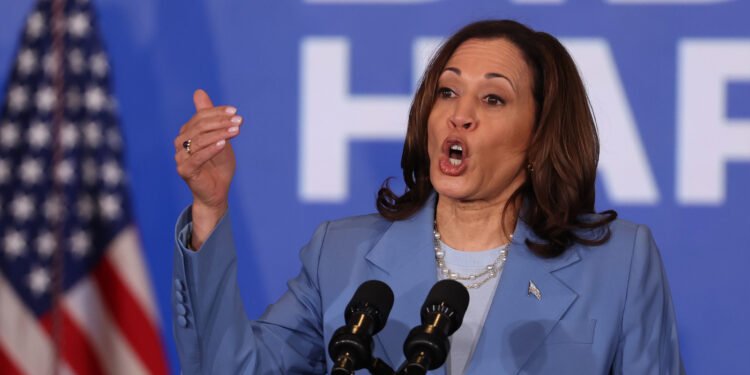Kevin O’Leary, known for his role on “Shark Tank” and as an investment adviser, has expressed concerns that if Vice President Kamala Harris were elected president, she could lead the United States down a similar path to that of Canadian Prime Minister Justin Trudeau, whom O’Leary criticizes as an extreme leftist responsible for Canada’s economic and societal decline.
In a recent interview with NewsNation, O’Leary compared Harris to Trudeau, describing her as the new “it kid” in American politics but criticized her for lacking a clear stance on key policy issues. He noted that during her 2020 presidential campaign, Harris was associated with several far-left views, yet now she seems to be avoiding detailed policy discussions.
“I don’t fault her for not diving into policy details right now,” O’Leary said. “She’s capitalizing on the momentum by positioning herself as the anti-Trump candidate, which is effective for fundraising. But eventually, she’ll need to address policy, and that’s where the uncertainty lies—no one really knows where she stands.”
O’Leary drew parallels between Harris and Trudeau, suggesting that, like Trudeau, Harris could be elected based more on her image than her policies. “Look at Trudeau in Canada. He was the ‘it kid’ a few years back, and now that country is struggling significantly,” O’Leary said. “Are Americans ready to elect someone who might be the next Justin Trudeau? I hope not.”
This comparison comes as recent polls show Harris gaining ground against former President Donald Trump, with some surveys showing her leading by a narrow margin. According to Rasmussen Reports, a recent poll showed Trump leading Harris by three percentage points in a head-to-head matchup, though other polls, including one from RealClearPolitics, indicate Harris has a slight edge.
Despite these varied polling results, Trump remains competitive in key battleground states. RealClearPolitics’ Electoral College projections suggest Trump could secure 287 Electoral College votes to Harris’ 251, with Trump leading in most major swing states, except for Wisconsin.
Recent polling trends have favored Trump, especially after an initial boost in support for Harris following President Joe Biden’s decision to end his re-election campaign in July. Although Harris has received favorable media coverage over the past month, Trump has maintained or regained his lead in several battleground states. For instance, a survey by Navigator Research indicated that the race is essentially tied in states like Arizona, Michigan, North Carolina, Pennsylvania, and Wisconsin, with Trump holding slight leads in Arizona and Pennsylvania.
Harris’ performance in battleground states is stronger than Biden’s was before he exited the race. Prior to Biden’s departure, Trump had maintained a lead of over 4 percent across the seven key states in the RealClearPolitics average. However, some Democrats are cautious about overestimating Harris’ polling strength. Chauncey McLean, president of the super PAC Future Forward, which has raised significant funds to support Harris, recently stated that internal polling numbers may not be as favorable as public polls suggest.
As the 2024 election approaches, the race remains highly competitive, with both Trump and Harris showing strengths and vulnerabilities in various states. The outcome will likely depend on how both candidates address key issues and connect with voters in the months leading up to the election.

























